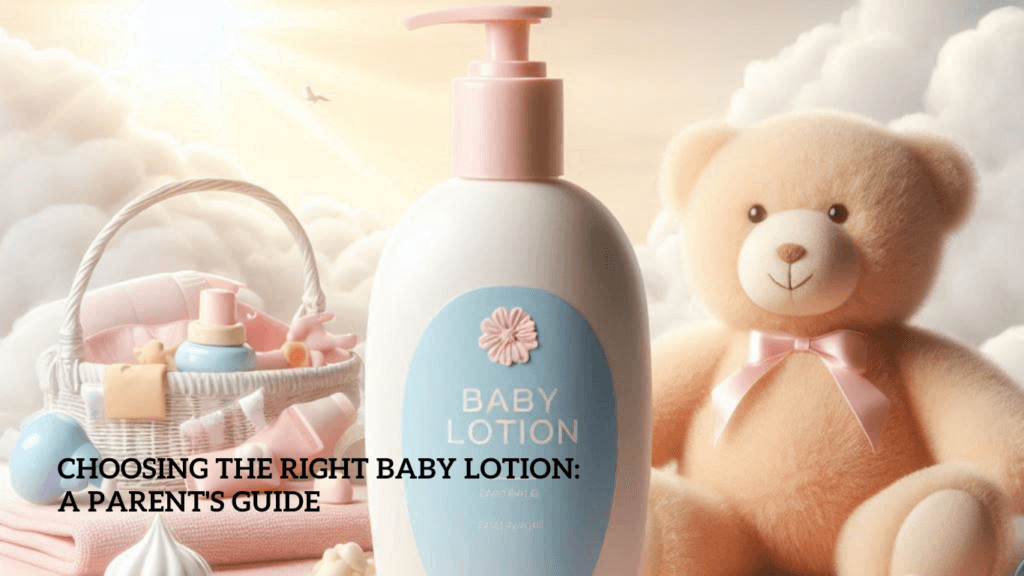
New parents, welcome to this guide to selecting the ideal lotion for your little bundle of joy. Your baby’s skin is extremely sensitive, so selecting the right lotion is crucial for their comfort and well-being. With all the choices available, it can be daunting, but don’t panic. We’re here to guide you through the world of baby lotions and discover the one that’s just right for your baby.
Let’s begin with the fundamentals. Baby skin is more sensitive and thinner than adult skin, so it requires special attention. The correct lotion will make your baby’s skin soft, moisturized, and shielded from irritation. We’ll discuss the various forms of lotion available, such as fragrance-free, hypoallergenic, and natural ingredient lotions. We’ll also explain what those ingredients are and whether they’re appropriate for your baby.
But selecting a lotion is more than just about ingredients. You’ll also want to think about your baby’s skin type – is it dry, oily, or in between? And don’t forget how frequently you’ll be applying the lotion. We’ll address all of that and more, so by the end of this guide, you’ll feel prepared to select the perfect lotion for your baby’s special needs.
baby’s skin is much thinner and more sensitive than that of an adult and is more susceptible to dryness, irritation, and damage from the environment. Regular use of lotion can keep the natural moisture barrier of the skin intact, keeping it soft, smooth, and healthy. Baby lotions also contain calming ingredients that can soothe common skin conditions such as diaper rash, eczema, and dry patches.
Don’t use a new lotion on the entire body of your baby first.
Do a patch test first.
Put a small amount of it on a small area of their skin, like the inside of the elbow, and wait 24 hours to see if there is a reaction.
If there is no redness, itching, or irritation, it should be okay to use.
Bathing your baby two or three times a week is typically enough. Over-bathing will dry out the skin and cause irritation by removing the natural oils. Use a fragrance-free, gentle cleanser, and always follow up with lotion after bathing to seal in moisture.
Shield your baby’s sensitive skin from the sun by applying a baby-safe sunscreen with SPF 30 or higher. Dress your baby in light, long-sleeved clothing, and wear a wide-brimmed hat to protect their face and neck. Keep your baby out of direct sunlight during the hottest part of the day (10 a.m. to 4 p.m.).
Choosing the best baby lotion means looking at hypoallergenic qualities, natural ingredients, and eco-friendliness. By adhering to these guidelines and tips, you can help your baby’s skin stay healthy, soft, and well-nourished. Don’t forget to test new lotions before applying them in full and treat any skin irritations immediately with appropriate products.
We’d love to hear your thoughts! Share your go-to baby lotions in the comments below. Happy parenting! 🌸 with Kalki Fashion
© 2024 All Rights Reserved

To provide the best experiences, we use technologies like cookies to store and/or access device information. Consenting to these technologies will allow us to process data such as browsing behavior or unique IDs on this site. Not consenting or withdrawing consent, may adversely affect certain features and functions.